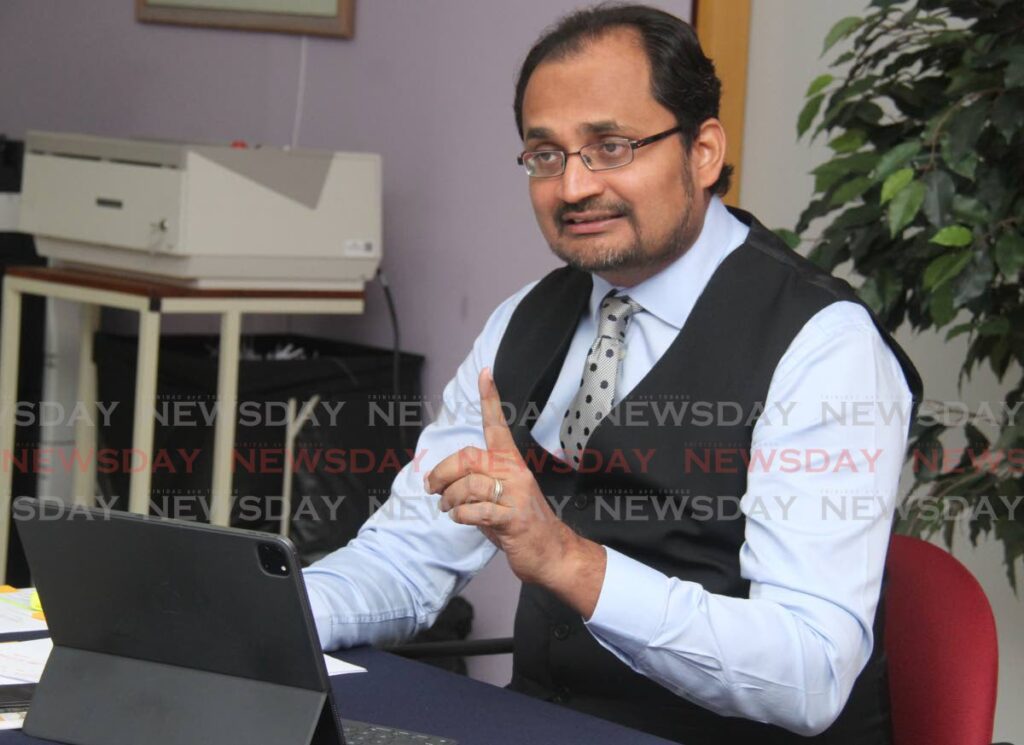Politicians and money a bad combination

DINESH RAMBALLY
IN THE recent furor over the recommendations of the 120th report of the Salaries Review Commission, a few issues have emerged in the public discourse. Before I get to these, for clarity, the SRC recommendations pertain to 950 office holders – these include high government officials, the President, judicial offices, missions abroad, various other legal and statutory offices, and the top rank of the civil service.
These issues under debate include: that the salaries of top officials who have responsibilities which compass billion-dollar ministries and thousands of staff ought to be paid more competitive salaries; that the top-level offices will take hefty increases and back pay is an insult to the general workforce, which is being offered four per cent; and given the output of these high offices, whether they deserve increases.
The 117th report of the SRC was rejected on the grounds of methodology and clarity and sent back to the SRC for the problems to be rectified earlier in the year. The report now under consideration is the 120th report, which recommended that most (98 per cent) of the salary recommendations of the previous one remain.
Needless to say, my objections also remain. It is my view that increases are not deserved at the moment and should not be accepted. The arguments for the increases are driven as much by populism as rationalism, and even where rational arguments are proffered, they are specious.
In the first instance is the argument that top-level civil servants like permanent secretaries ought to be paid more, given their responsibilities. This appears sensible, but further inspection looks otherwise.
An elementary distinction in undergraduate economics concerns public and private sector economics. The private sector is risk-taking, dynamic (embracing and initiating change), and unstable, as businesses come and go with technology and times.
The public sector is the opposite: rule-bound, conformist, and risk averse. Public sector managers manage to preserve the status quo, within an inflexible rule structure, often at the expense of efficiency and end results. So “management” here has significant differences from what the private sector practices.
Furthermore, people who choose careers in the public service do so upon the expectation of stability. They ascend the ranks by obedience and conformity. Decisions made at ministries are political, and civil servants advise and implement.
As for politicians who expect raises, the argument goes that they deal with interests – corporate, governmental, private – who court them because of their influence. Hence they should be paid more to insulate them from influence. But this is nonsensical. The salary would have to be astronomical for this to have a chance of success, assuming it had a chance.
A crucial point being deliberately forgotten here is that not only are politicians rarely solicited by the public, but they frequently offer themselves for service on the basis of competence, and the ability to serve the public. Indeed, many lawyers and other professionals enter politics for just that – they want to help. The salary and perks are more formalities than compensation. The term “career politician” is often an epithet, not a compliment.
And there is a final consideration: while some countries, like Japan and Singapore, recruit the best and brightest for government and public service, and pay them handsomely, these appointments and wages are enmeshed in an environment and institutional architecture of accountability and integrity. I doubt that anyone would deny that not only do these not exist in TT now, but that the system is designed to be the opposite of this.
Candidates are selected based on their obedience, pliancy and their covert or overt acceptance of the wishes of the ruling party. I need only point to the Prime Minister’s upending of the Police Service Commission’s choices for Commissioner of Police, and the fact that the present and last commissioners were far from the top of their merit lists, and the current crime situation.
And the final point to be made here is that while the raises will be given to fewer than 1,000 people, this too is a specious argument. Like placing the steelpan on the national flag, the symbolic effect of this move is enormous. What is the government saying to the citizens by taking a large, and in the opinion of many undeserved, increase, while ordinary people struggle to pay bills, and take care of families? What does this do to our social capital?
Government is not a business. The aim of business is to make a profit in any way it can. The aim of government is to look after the welfare of its constituencies. It requires a different kind of decision-making. Any politician in it for the money needs to find another job.
Dinesh Rambally is the MP for Chaguanas West

Comments
"Politicians and money a bad combination"